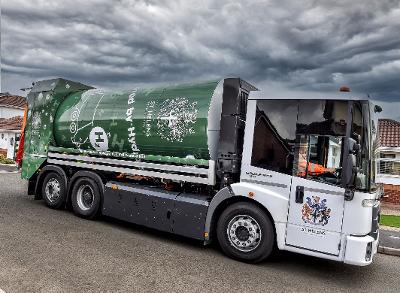Council's fleet modernisation continues to cut carbon and costs
An ongoing plan to replace ageing council vehicles with modern and electric alternatives is continuing to save money and cut carbon emissions by 100s of tonnes every year.

Article date: 20 July 2023
Approved by Cabinet yesterday (Wednesday 19 July), the report details the replacement of 45 vehicles and equipment from mowers, sweepers and small vans to trailers and tools.
It follows the replacement of 93 vehicles and equipment last year, including 37 electric vehicles, mowers, gritters and refuse vehicles.
The focus of the replacement programme is to build the council's fleet of electric vehicles and continue the transition from inefficient and unreliable vehicles to a new, greener and dependable fleet.
The replacement programme is now saving more than 100 tonnes of carbon every year, supporting the council's Climate Action Plan and its journey to net zero emissions by 2040.
And it is helping to upskill the council's mechanics, collection crews and grounds maintenance officers, with new technologies to learn and adapt to.
As the council's fleet of nearly 300 vehicles has aged, revenue maintenance costs have increased year on year since 2014. Many of the vehicles are now years beyond their industry standard life spans.
Older vehicles require more maintenance time in the workshop, leading to loss of productivity, incurring additional expenditure, and often leading to operational disruption.
The replacement programme represents a significant capital investment by the council of over £1.5m and will help to reduce ongoing revenue maintenance costs for many years to come.
Councillor Andy Bowden, Cabinet Member for Environmental Services and Climate Change, said:
"This replacement programme is supporting our services to undertake wider modernisation and provide flexibility for the future. It will also ensure that our workforce has access to modern and fit for purpose vehicles and equipment, increasing service efficiency and cutting maintenance costs dramatically.
"And by adopting more electric and hydrogen vehicles we continue our transition to a low carbon fleet in a managed way, taking further significant steps towards our ambitious target of net zero emissions by 2040."




